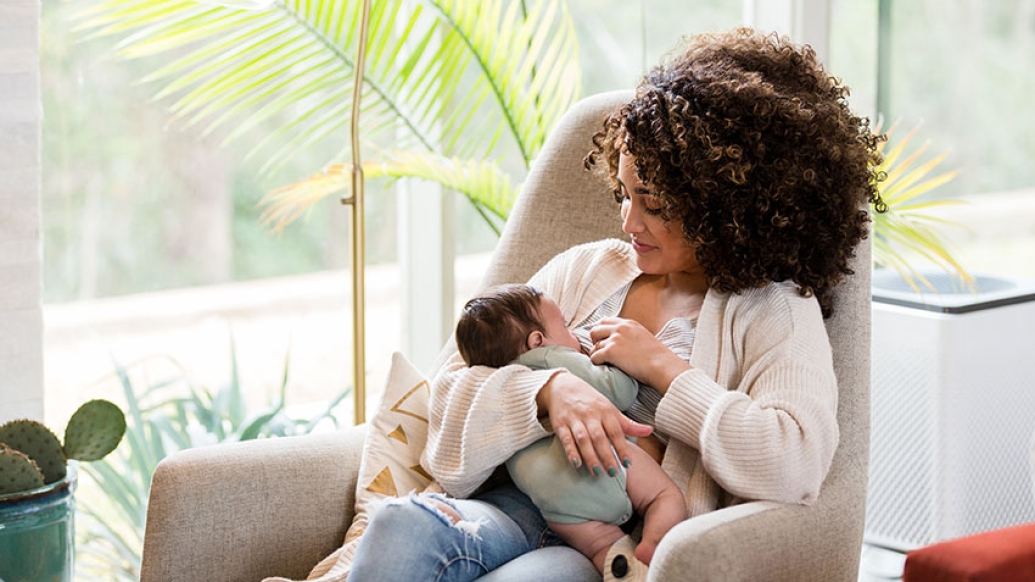CDC urges vaccination among expectant moms to prevent severe illness, adverse pregnancy outcomes.
5:00 AM
Author |

Rising cases of severe and fatal cases of COVID infections among expectant moms is prompting health officials to enhance efforts to boost vaccination rates among people who are pregnant.
The Centers for Disease Control and Prevention issued an urgent alert to increase vaccination among the pregnant population, those who were recently pregnant (including nursing moms) and those planning to conceive to prevent serious illness, deaths and adverse pregnancy outcomes.
"We strongly recommend pregnant women receive the COVID vaccine because the health risks of COVID-19 in pregnancy can be severe and life-threatening," said Cosmas Van De Ven, M.D., a maternal-fetal medicine specialist at University of Michigan Health Von Voigtlander Women's Hospital.
"Studies continue to reinforce the importance of vaccines during pregnancy and their power to protect two lives at once by preventing severe illness in both moms and babies."
The CDC guidance comes as the agency reports a quarter of a million COVID cases among pregnant women, including 22,000 hospitalizations and 161 deaths – with 22 deaths in the month of August alone.
Pregnant women with symptomatic COVID have twice the risk of requiring intensive care and a 70% increased risk of death, according to the CDC. They're also at an increased risk of negative pregnancy outcomes that could include preterm birth, stillbirth, and admission into the intensive care unit of a newborn also infected with COVID-19.
While the COVID-19 vaccine clinical trials didn't initially include pregnant or nursing people, recent research demonstrates the vaccine's efficacy in producing antibodies against COVID in this population, Van De Ven said.
"It's extremely encouraging to see that pregnant women show robust immune response to coronavirus vaccines," he said.
Because of the known risks of COVID during pregnancy and the biology of mRNA vaccines – which are made with a string of the genetic material and not the virus itself – scientists, doctors, and professional organizations in the United States strongly encourage pregnant women to get vaccinated.
Studies continue to reinforce the importance of vaccines during pregnancy and their power to protect two lives at once by preventing severe illness in both moms and babies.Cosmas Van De Ven, M.D.
The CDC is now calling on health departments and clinicians to educate pregnant people on the benefits of vaccination and the safety of recommended vaccines.
"The benefits of the vaccine appear to far outweigh any theoretical risks related to side effects," Van De Ven said.
Vaccine antibodies pass through placenta, breastmilk
Vaccination during pregnancy may also help newborns arrive in the world already protected from the deadly virus.
While babies aren't yet eligible for the COVID vaccine, they can glean immunity either in the womb or through breastmilk if their mother gets vaccinated, recent studies suggest.
The largest multi-center study so far to look at the mRNA COVID-19 vaccine in pregnant individuals, led by Stanford University, involved 131 women. Researchers found vaccine-generated antibodies in all umbilical cord blood and breast milk samples taken from the study, but it's unclear how long this protection lasts.
Like Podcasts? Add the Michigan Medicine News Break on iTunes, Google Podcasts or anywhere you listen to podcasts.
The ability to transfer vaccine antibodies to the fetus has previously been documented for other illnesses like the whooping cough and flu, which can be dangerous to infants, Van De Ven said. Vaccines against these diseases have long been recommended during pregnancy to protect newborns.
"We now have evidence that antibodies created by the COVID-19 vaccine can travel through the placenta to the baby before birth and also during lactation," Van De Ven said.
"This is reassuring news for pregnant people who want to get vaccinated but may still be hesitant. The research shows no evidence of any harm – only benefits – for newborns."

Explore a variety of healthcare news & stories by visiting the Health Lab home page for more articles.

Department of Communication at Michigan Medicine
Want top health & research news weekly? Sign up for Health Lab’s newsletters today!





